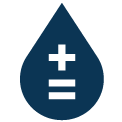Web Summit Review: 5 Things to Learn
Web Summit, which Forbes calls the “best technology conference on the planet,” brings together some of the best and brightest tech minds from all across the world to discuss what’s hot, what’s not, and what’s next.
During the 2018 conference, the Altice Arena in Lisbon, Portugal, saw 70,000 people walk through its doors, from November 4–7. Each person — from the inventor of the web to pre-seed startups — walked out with a better sense of where we’re heading. ThinkData Works was proud to attend Web Summit this year and meet so many dynamic people working on incredible projects.
These are our 5 main takeaways from the conference.
1. Everyone’s Talking AI
We saw a lot — a LOT — of startups that are pitching themselves as an AI solution. Makes sense, given that the fervour surrounding artificial intelligence is at its peak, but sometimes it feels like the words have lost their meaning. Established enterprises have caught on and are positioning themselves to be at the forefront of this emerging technology, but there does seem to be a growing divide between actual AI and, well, using data in cool ways.
As AI (real AI) continues to transform industries, it will be important for everyone to understand exactly what it is, but also what it isn’t. Data — the thing that powers AI — can and should be used by anyone to enhance understanding, drive insight, and develop new ways of thinking, but that is not the same thing as Artificial Intelligence.
AI will very possibly transform the world, but if you’re just trying to get from A to B, chances are some good data and a clever data scientist can get you there.
2. Leave the Crypto, Take the Blockchain
Ok, so there were some crypto headlines that came out of Web Summit. Wallet provider Blockchain (company, not concept) announced a partnership with Stellar Lumens and gave everyone at Web Summit $25 worth of the cryptocurrency, which shook out to a $125M giveaway. UK-based eToro, a crypto trading platform, awarded 0.1 ETH (~$21) to the first 100,000 people who downloaded their wallet, and BTC.com tried to boost adoption by giving away cards worth 0.003 BCH (~$1.80). So no, crypto wasn’t exactly absent from the conference, but despite these big promotional offers, I personally didn’t see a lot of crypto-based companies or conversations happening.
Blockchain technology, on the other hand, has come of age. We spoke with a number of interesting companies that are leveraging blockchain to enable better business practices across a wide variety of industries. This makes sense, as there is a growing need for not only data protection, but better data management practices overall, and blockchain provides an answer. As we move toward better digital practices overall, blockchain looks to be a major benefit in both public and private sectors.
3. Data Governance isn’t a talking point, it’s a prerequisite
This was satisfying. Maybe it’s because we were in Europe, where discussions around data governance have hardened into regulation, or maybe it’s that the tides have really turned, but everyone who mentioned data followed it up with a discussion about data governance. This was an inevitable perspective shift, and the winners in the digital economy will have a solution in place that enables data governance at scale. We’ve written about the GDPR and how it means better business, and it’s good to see that kind of messaging percolate at every level, from startup to enterprise.
You’d be hard pressed to find a company presenting at Web Summit that wasn’t in some way a data company, and as such everyone there seemed to understand that we need to develop solutions to keep data protected, manage where it’s warehoused, enable opt in/opt out for subjects, and generally speaking make sure they’re not behind the eight ball. These conversations are happening, and that’s great news.
4. The Smart _________ (noun) will be the status quo
Whether we’re talking cities, government, or CRM, everyone’s talking smart something. What’s behind this is that every aspect of every industry can, and will, be transformed by a tidal wave of data coming their way. Unprecedented access to data (open data, external data, IoT data, big data) will enable people to get truly creative with how they solve problems, and the interoperability of this data through APIs will let smart solutions talk to each other.
What’s profound about the “smart” solution is that it will have an impact on multiple levels. A smart CRM does more than funnel good leads to your sales division, it’s a revolution in customer service. Smart intersections aren’t just a cog in the Internet of Things, they’re a way to manage traffic, limit energy use, increase safety, understand trends, and diagnose issues before they arise.
5. Sustainability is good business
In the years I’ve attended tech conferences, it’s standard procedure to mention the environment while a conversation is winding down; add an afterthought about goals and strategic initiatives. That lip service has evolved into action. Lisa P. Jackson, Administrator of the EPA under President Obama, summed it up best when she took the main stage on opening night: “there is no conflict between a healthy planet and a healthy bottom line,” said Jackson, who now works as the Vice President of Environment, Policy, and Social Initiatives at Apple.
This is a refreshing perspective. It suggests that sustainability isn’t just affordable, but profitable. This was borne out by the number of environmentally-focused companies we met during the remainder of the conference. From Alpha-stage startups to main stage organizations, sustainability was, for many, not the cost of doing business but a market opportunity they’re eager to seize.
Did you attend Web Summit and see something we didn’t? We’d love to hear from you. Reach out to us to let us know what you were up to during the conference.
All images provided by Web Summit — see more here.
Originally published at https://blog.thinkdataworks.com.
